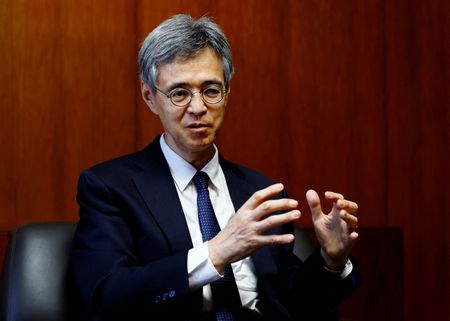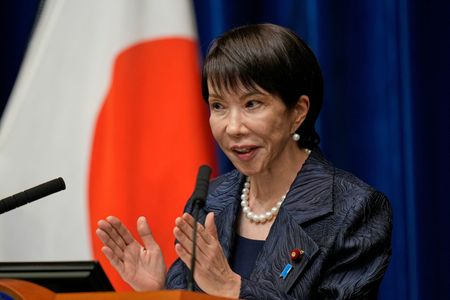By Leika Kihara
TOKYO (Reuters) -Global regulators must adapt to new realities in the financial system, such as an increasing ratio of assets held by non-bank financial institutions and the emergence of stablecoins, Bank of Japan Deputy Governor Ryozo Himino said on Tuesday.
The G20 major economies repeatedly affirmed their commitment to implement the Basel 3 regulations on the banking system, but the deadlines were extended time and again, Himino said.
In the meantime, the global financial system has changed, with half of assets now held by non-bank financial institutions that fall outside the remit of Basel 3, he said.
Stablecoins might emerge as a key player in the global payment system, partially replacing the role of bank deposits, said Himino, who was formerly Japan’s top banking regulator.
“Regulators are doing a lot in these spheres, but much more needs to be done,” Himino said in a speech at the 2025 GZERO Summit Japan.
“We need to continue to modernise international prudential standards to keep up with the new and emerging realities.”
U.S. banks, which have by far the strongest dollar deposit bases, have a significant competitive advantage in the international banking market and could take the lead in developing common standards to prevent market fragmentation, Himino said.
Authorities must also persuade the public that implementing common financial regulatory standards would be in the best interest of their countries, he added.
“Even in the past, there was no fixed formula that solved all problems. Today, there may be more need to tailor our approach to the demands of the task and the circumstances, and to be agile in seizing the opportunities that arise,” he said.
Basel 3 is a global regulatory framework developed by the Basel Committee on Banking Supervision in response to the global financial crisis in 2007 and 2008. Its primary goal is to strengthen regulation, supervision, and risk management within the banking sector.
(Reporting by Leika Kihara; Editing by Jamie Freed and Lincoln Feast.)











